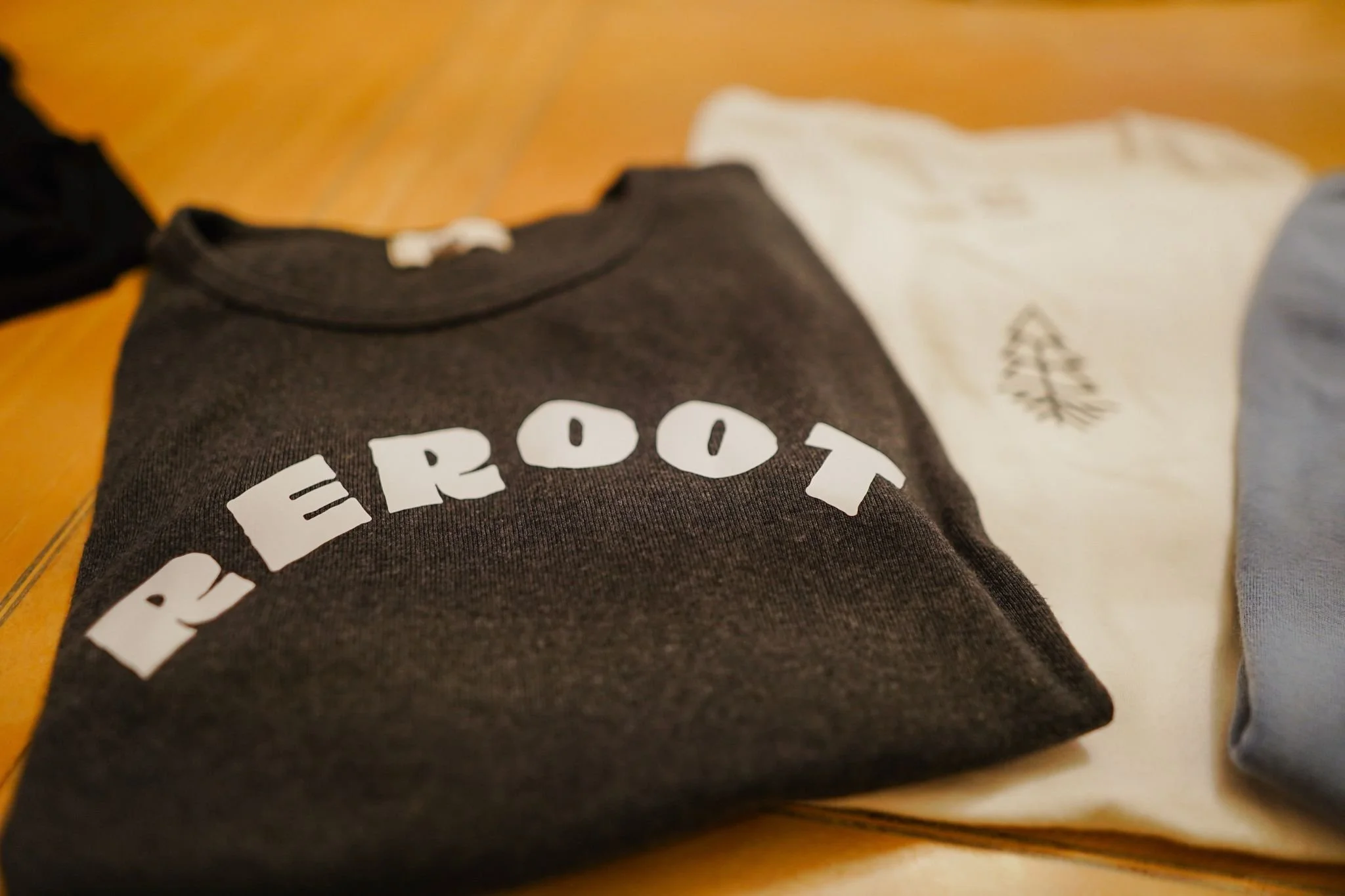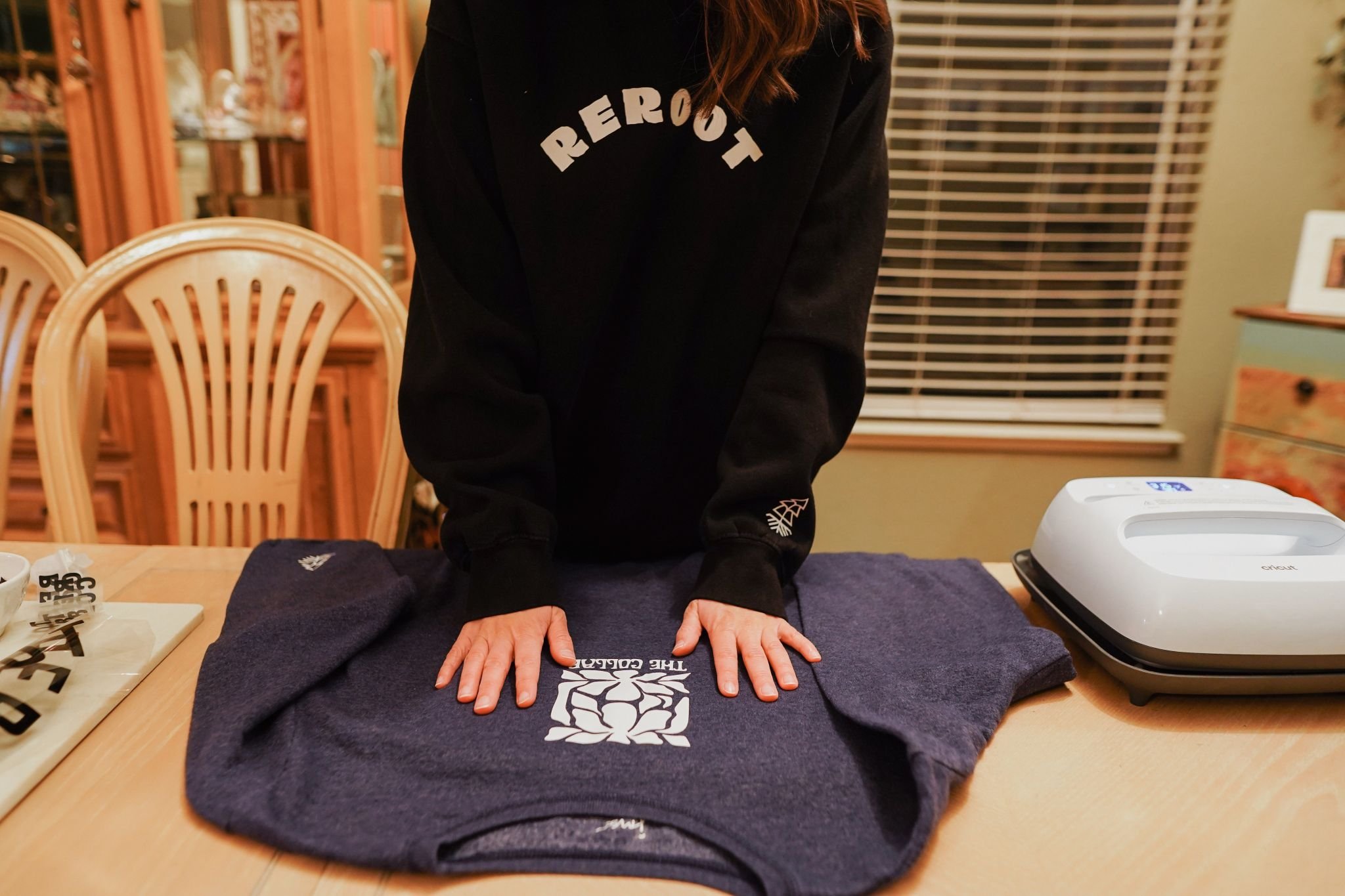Make an
impact today
Support the collab through donation.
Every Re|Root impact piece is made from textiles recovered from last-stop thrift stores in the U.S. before they are landfilled or enter the global secondhand trade.
Each piece is one-of-a-kind. Slight variations and character marks are part of its story.
Donate. Divert. Wear the change.
Set up a recurring donation and receive an exclusive Re|Root impact piece as a thank-you gift.*
*Impact pieces are offered as donor appreciation gifts and are not purchases. Donors receive one impact piece when their cumulative contributions reach $100. Donations are tax-deductible to the extent allowed by law.

Join our mission
let’s reroute waste together!
The Why
〰️
The Why 〰️
The Why
Environmental Restoration
The average Ghanaian produces about 1 pound of waste per day, compared to nearly 5 pounds in the United States. Although Ghanaians produce far less waste than people in high-consumption countries, they carry more than their fair share of the world’s discarded plastics and textiles. Re|Root partners with local changemakers to restore beaches, rivers, and communities, building solutions that keep materials in use and create opportunities for both people and the planet.
Shared Responsibility
Waste doesn’t stop at borders. Much of Ghana’s plastic and textile waste comes from countries with advanced recycling systems. Supporting recycling and recovery efforts in Ghana isn’t charity - it’s shared responsibility. Together, we can reduce global waste and show what collective stewardship of our planet can look like.
Community Health
Air pollution in Ghana is estimated to result in 28,000 premature deaths annually. Burning and dumping waste release toxins into the air and water, contributing to respiratory problems, infections, and flooding. Blocked drains and polluted environments also create ideal breeding grounds for malaria and other preventable diseases. Cleaner waste management systems mean healthier families, safer neighborhoods, and stronger communities.
circular economy
Less than 10% of Ghana’s waste is recycled. Each year, more than 100,000 tons of used textiles are imported, and in markets like Kejetia, nearly 40% of those items are unsellable and turn into waste. Re|Root works with local entrepreneurs to reimagine these materials – turning what looks like trash into something useful, fostering creativity, job opportunity, and local resilience.
dignified green jobs
Across Ghana, thousands of people earn a living collecting and sorting waste, often without proper protection or fair pay. Re|Root works alongside these workers to strengthen training, safety, and income, helping turn vital but undervalued labor into dignified, sustainable green jobs that benefit families and communities.
healthier future generations
Children deserve safe places to grow, learn, and play. By improving how waste is managed today, we can help build a future where Ghana’s next generation breathes cleaner air, drinks safer water, and grows up in communities free from pollution.








